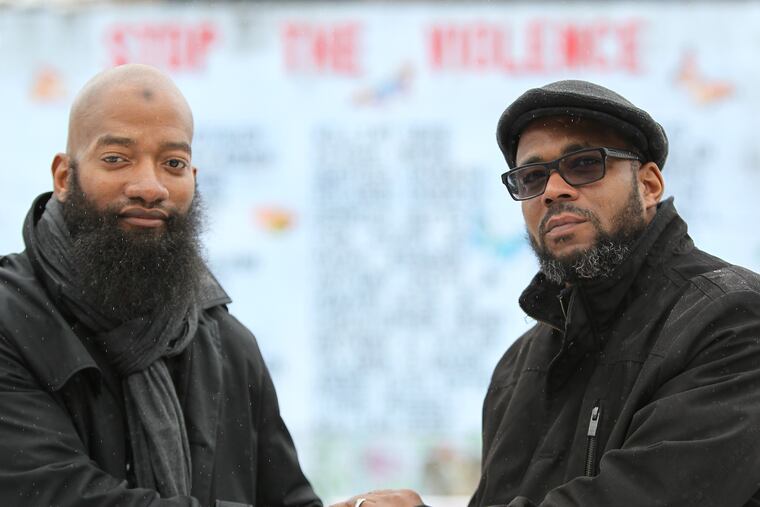New documentary featuring South Philly’s Will Little focuses on impact of gun violence on shooters | Jenice Armstrong
“Growing up in the streets in the ’80s, it was real dangerous. Guns. Drugs. Murder. Guys were sticking people up left and right."

I spend a lot of time interviewing and writing about victims of violent crime.
This time I’m focused on a convicted murderer and what his life was like after. That’s a perspective we don’t get that often.
In Will Little’s case, he had come up the hard way, selling drugs and running with a South Philly street gang around 20th and Tasker. He killed Terrence Brice, a rival gang member from 17th and Dickinson, during a 1989 shootout at St. Charles Skating Rink at 20th and Christian.
At the time, he had a whole lot of emotions running through him — hurt, because of a friend’s death a month earlier; anger at the gangsters shooting at him, and also determination. Little remembers telling himself, “We ain’t taking no more losses.” He pulled the trigger, killing Brice, who was 18 just like him.
Little was found guilty of third-degree murder and spent 10 years in prison, where he converted to Islam. He returned to South Philly in 1998, a radically changed man “wanting to clean up my dirt."
These days, he spends his days cutting hair at Jazz-U-Up Barber Shop at 16th and Tasker and his nights mentoring adults and teenagers at anti-violence sessions in barbershops, rec centers, and schools all over the country. He also teaches classes on emotional intelligence to help people understand how to manage their feelings.
What’s even more amazing is that Little and Clarence Hatton, a brother of the man he killed back in 1989, managed to reconcile. These days they work together to teach forgiveness and redemption through an organization they cofounded.
Little is something of a legend.
I learned of him years ago when I skimmed through portions of his 2008 memoir, ICY - Inner City Youth: The Life and Times of Will Little. The violence depicted in that book had me scared to walk down certain streets. Before I got to know Little better, it had me looking at him a little side-eyed.
I’m glad his story is being shared in a new documentary called Behind the Bullet, which is available on various streaming services beginning Tuesday. It shares the experiences of four people who have shot someone.
“All four people that I interviewed, they have a moral injury that has happened to them because they had a gun for self-defense and it was used in the way they intended — or not,” said director Heidi Yewman, a 1986 graduate of Columbine High School who became an activist after the 1999 mass shooting at her Colorado alma mater. “There are consequences.”
Little’s portion of the film is especially gripping.
“Growing up in the streets in the ’80s, it was real dangerous. Guns. Drugs. Murder. Guys were sticking people up left and right,” Little recalls. “Like a lot of young kids who grew up in single-parent homes, who don’t know who they are, we became what the streets told us we were.
"We were drug dealers. We were hustlers. [We] were killers. We got into a lot of altercations and we started buying guns. Guns were accessible to us and we had plenty of them. And when you get the possession of a gun, it kind of makes you not afraid of anything anymore.”
After prison, he couldn’t find a job, and danger in the streets awaited.
“I knew the guy I killed had a brother that was out in the streets that was plotting revenge and wanted to shoot me,” Little says in the film. “When he walked in the barber shop that day, he was like, ‘Can I talk to you for a minute?’”
Instead of showing up to avenge his brother’s murder, Hatton was there to say, “I forgive you.”
I wish I could have been there to see it.